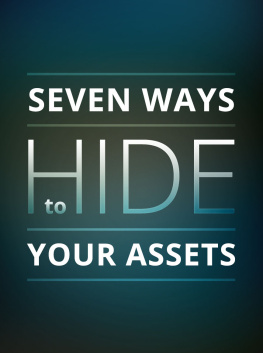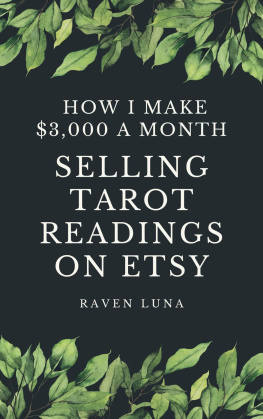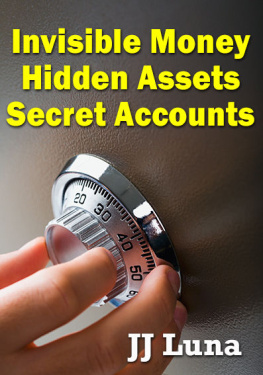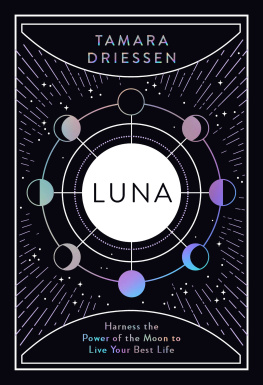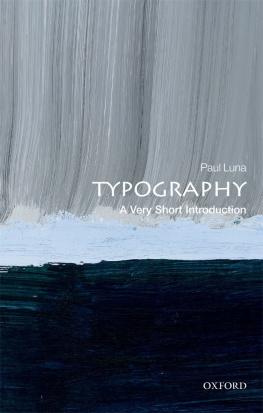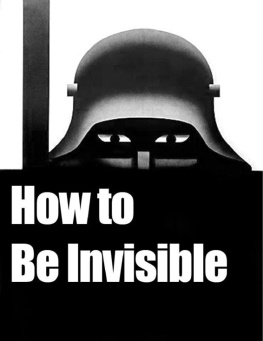
Seven Ways to Hide Your Assets
JJ Luna

This is a brief report , not an eBook. It is designed to give
you just a quick overview of various ways to hide your
assets, plus sources for additional information.
June 2015 Canary Islands Press . Calle/Benito Perez Armas 12, 35500, Arrecife de Lanzarote, Canary Islands, Spain. All Rights Reserved worldwide under the Berne Convention. Canary Islands Press makes no representation or warranties with respect to the accuracy or completeness of the contents of this report and specifically disclaims any implied warranties of merchantability or fitness for any particular purpose and shall in no event be liable for any loss of profit or any other commercial damage, including but not limited to special, incidental, consequential, or other damages.
Where and Why to Hide Some Cash
One of these days, all the banks will shut down, just as all the airports shut down on 9-11. Its not a matter of if but when. It doesnt matter whether the ones behind the cyber-attack are terrorists, Bulgarian hackers, or the Chinese government. What is important is that you will no longer be able to cash a check or to draw cash from an ATM.
How much actual money do you have in your home right now ? Stop reading and start counting. How much do you have in your wallet? How about your spouse? Kids? Piggy banks? How many weeks or months will be you be able to pay cash for groceries and fill up your gas tank?
Instructions:
Hide at least $1,000 cash in your home. $10,000 will be far, far better! Compared to your neighbors, relatives, and friends, youll be like the one-eyed man in the Kingdom of the Blind.
*****
How to Hide Your Bank Account
Any nut, jerk, or psychopath can go to a lawyer and ask him file a lawsuit against you on a contingency basis. A number of these sharks are willing to do so, but only if you have deep pockets. To find out, the lawyer hires a P.I. to check out your assets primarily to find out how much cash you have in your accounts. If youve been doing well and all your accounts are in your home state, prepare to be sued.
What if your major bank accounts are in an adjoining state?
In some cases, that may help, because there is no national database that private investigators can access. The charge of these searches is state by state. The cost is not cheap. At the latest, the lawyer will call off the search if no major accounts have been found in your state, or in an adjoining state, and if there have been no leads from a bank or credit bureau that reveal your secret account in a distant state.
Therefore, find a small bank in a faraway state. Open a non-interest bearing account with a bank cashiers check. Do not accept a debit or credit card. Withdraw cash via ATMs.
*****
Open a Foreign Bank Account
When you think about a foreign bank account, countries such as Switzerland, Singapore, Liechtenstein, or the Turks and Caicos Islands may come to mind. However, since the 2010 passage of the Foreign Account Tax Compliance Act (FATCA), which seeks to prevent tax evasion by Americans with offshore accounts, opening a foreign bank account has almost become mission impossible. On May 24, 2012, The Christian Science Monitor ran an article Offshore Bank Accounts: No Americans Allowed. Here are just two paragraphs; they suffice to explain the problem.
The 2010 law, to be phased in starting Jan. 1, 2013, requires financial institutions based outside the U.S. to obtain and report information about income and interest payments accrued to the accounts of American clients. It means additional compliance costs for banks and fewer investment options and advisers for all U.S. citizens living abroad, which could affect their ability to generate returns.
I dont open U.S. accounts, period, said Su Shan Tan, head of private banking at Singapore-based DBS, Southeast Asias largest lender, who described regulatory attitudes toward U.S. clients as Draconian.
Nevertheless, as of this writing, at least a few Canadian banks are still opening accounts for Americans. After all, a tremendous number of Americans own properties and do business in Canada. True, not all Canadian banks still open accounts for Americans, but many do. It depends on both the bank and the
province, as some provinces have rules that others do not. Check around.
*****
Set up a Revocable Trust
This is a topic that could fill booksand has! Charitable trusts are one of the minor ways...and there are multiple types of charitable trusts. Never to be tried without a lawyer/CPA. Irrevocable domestic and foreign asset protection trusts are the choice of the wealthy.
My advice, however, is that it is far easier and cheaper to do a title holding trust or what I call a privacy trust. Like a living trust, these trusts are all revocable trusts usually created to benefit the person(s) who put in the assets. Says attorney John Clark, who has specialized in privacy for the last 25 years:
I recommend using separate LLCs and trusts to own property and make the living trust the successor member or beneficiary. Otherwise all of the assets get listed on the Schedule A attached to the living trust...like a roadmap to everything you own. The way I do it everything is transferred to the living trust only upon death to be managed until distribution. The key thing is to check with a CPA to make sure there will be a step up in basis on appreciated assets when relatives inherit through the living trust.
The above is of course simplified. This is not a DIY project. You must use a competent attorney.
***
My personal favorite: Nominee Bank Accounts
I have been using nominees to open bank accounts for me since 1967first in Spain, later in Mexico, and currently in the United States. (Although the word nominee usually refers to a person nominated for a political office, in this report I use it in its secondary meaning: someone who takes your place as the owner of a bank account that actually contains your money.) Despite the tremendous advantages of using a nominee, few people are willing to do this. Some of the excuses offered are:
- Its too much trouble.
- I dont know who to use.
- I dont want this additional expense.
- I plan to get a nominee later on
The problem with later on is that problems often arrive with no advance warning. What if unknown to youa PI has tracked you down because a lawyer is about to file a frivolous lawsuit? Or the IRS, acting on a false tip, freezes your bank accounts? Hopefully, nothing similar will ever happen to you, just as you may never have an accident with your car or a fire in your home. But dont you sleep better, knowing you have insurance?
*****
How to be Invisible
This section is a shameless pitch for my book of the same name, now in its third edition. However, when it comes to hiding everything you own, it will not work unless you move, and not to just another place in the same town or city. If, therefore, you plan to stay where you are, skip this section.
Use an altered or changed last name
For those few hardy souls who are willing to move, heres a brief quote from Chapter 9 of How to be Invisible : Your Alternate Names and Signatures:
You may use one or more additional names and still retain your legal name. I suggest you keep your own first and middle name but change your last name. Choose a common name, one that will be shared with thousands of others. Why not pick a family name from the Mayflowe r ? Here are some of the more common names, culled from a complete list kept by Christopher Jones, Master, A.D. 1620:
Next page
